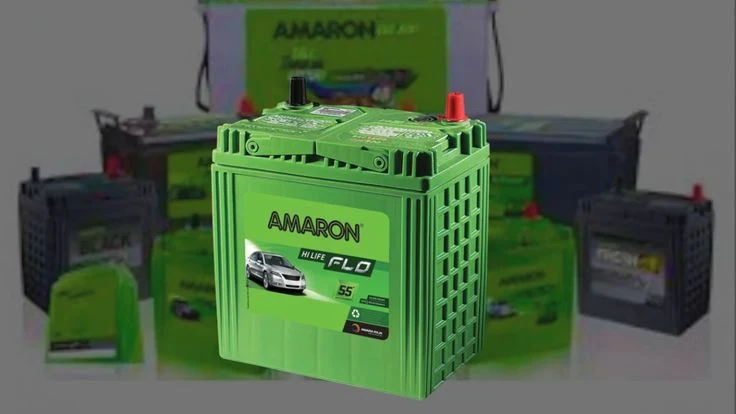In the pursuit of a more sustainable future, clean energy technologies are at the forefront of global efforts to reduce carbon emissions, combat climate change, and shift away from fossil fuels. One key player in this transition is the advancement of battery technologies, which are critical for storing renewable energy, powering electric vehicles (EVs), and balancing grid systems. As the demand for clean energy grows, so does the need for advanced battery systems that are efficient, scalable, and environmentally friendly.
This article explores the evolution of advanced battery technologies, their role in the clean energy revolution, and how they are shaping the future of energy production, consumption, and storage. We'll also examine the current state of advanced battery tech, key innovations, and what the future holds for advanced batteries and their impact on global energy markets.
The Role of Batteries in Clean Energy
The shift toward renewable energy sources such as solar, wind, and hydroelectric power has accelerated in recent years, driven by both environmental concerns and advances in technology. However, one of the biggest challenges in scaling these energy sources is their intermittent nature—solar panels only produce energy when the sun is shining, and wind turbines only generate power when the wind blows. This makes energy storage solutions, especially advanced battery systems, critical for ensuring a reliable and consistent energy supply.
Advanced batteries allow renewable energy to be stored and used when needed, whether it's to power homes during the night or to smooth out fluctuations in energy production. As a result, the development of advanced battery technologies is vital for the success of the clean energy transition, especially as nations seek to reduce their reliance on fossil fuels and decarbonize their economies.
Types of Advanced Battery Technologies
Several types of advanced battery systems are being developed and deployed to meet the growing demand for energy storage in renewable energy applications, electric vehicles, and other industries. Some of the most promising and widely used technologies include lithium-ion batteries, advanced lead-acid batteries, solid-state batteries, and flow batteries. Each of these technologies has its strengths, limitations, and potential for further innovation.
1. Lithium-Ion Batteries
Lithium-ion (Li-ion) batteries are currently the most common and widely used advanced battery technology, particularly in electric vehicles (EVs) and consumer electronics. These batteries are known for their high energy density, long cycle life, and relatively low weight, making them an ideal choice for applications that require lightweight and compact energy storage solutions.
In recent years, researchers have been working on enhancing the performance of lithium-ion batteries by improving their energy density, charging speed, and safety features. Innovations in materials such as silicon anodes and solid electrolytes have the potential to further increase the capacity and lifespan of lithium-ion batteries, making them even more efficient and cost-effective.
2. Advanced Lead-Acid Batteries
Although lithium-ion batteries dominate the energy storage market, advanced lead-acid batteries continue to play an important role, especially in grid storage and backup power applications. Advanced lead-acid batteries offer several advantages, including their low cost, proven reliability, and ability to deliver high power in short bursts.
These batteries have evolved from traditional lead-acid designs to incorporate new materials and technologies that improve their performance. For example, some advanced lead-acid batteries use carbon additives to enhance the battery's charge acceptance and reduce sulfation, which extends the battery's life. This makes them a viable option for applications where cost and reliability are prioritized over energy density.
3. Solid-State Batteries
Solid-state batteries represent one of the most exciting areas of advanced battery tech. Unlike conventional lithium-ion batteries, which use a liquid electrolyte to transport ions between the anode and cathode, solid-state batteries use a solid electrolyte. This design offers several advantages, including improved safety, higher energy density, and the potential for faster charging times.
Solid-state batteries have the potential to revolutionize the energy storage market by offering a safer and more efficient alternative to traditional lithium-ion batteries. While solid-state technology is still in the development phase, several companies and research institutions are working to bring these batteries to market, with the expectation that they will play a significant role in the next generation of electric vehicles and grid storage solutions.
4. Flow Batteries
Flow batteries are another type of advanced battery system that holds promise for large-scale energy storage applications. Unlike conventional batteries, which store energy in solid electrodes, flow batteries store energy in liquid electrolytes that are housed in external tanks. This design allows flow batteries to scale up more easily, making them well-suited for grid storage and other large-capacity applications.
Flow batteries offer several advantages, including the ability to store energy for long periods and the potential for nearly unlimited energy capacity, depending on the size of the electrolyte tanks. While flow batteries are still more expensive than lithium-ion batteries, ongoing research and development efforts aim to reduce costs and improve efficiency, making them a viable option for large-scale energy storage in the future.
Key Players in Advanced Battery Technologies
The development and commercialization of advanced battery technologies are being driven by a range of companies, research institutions, and startups around the world. Some of the leading players in the industry include:
1. Advanced Battery Technologies Inc
Advanced Battery Technologies Inc is a company that specializes in the development and manufacturing of advanced battery systems for a variety of applications, including electric vehicles, consumer electronics, and renewable energy storage. The company has focused on producing high-performance, environmentally friendly batteries that meet the growing demand for clean energy solutions.
Advanced Battery Technologies Inc has been involved in several research and development initiatives aimed at improving the energy density, cycle life, and safety of its batteries. By leveraging cutting-edge materials and manufacturing techniques, the company is well-positioned to play a key role in the future of advanced battery tech.
2. Tesla
Tesla is one of the most well-known companies in the energy storage and electric vehicle markets. Its advanced battery technologies have helped drive the widespread adoption of electric vehicles, and the company continues to innovate with its battery production and design. Tesla's Gigafactories produce large-scale lithium-ion batteries for use in electric vehicles and its Powerwall and Powerpack systems, which are designed for home and commercial energy storage.
Tesla has also been at the forefront of efforts to reduce the cost of advanced batteries through vertical integration and improvements in manufacturing efficiency. The company's focus on energy storage has made it a leader in the global transition to renewable energy.
3. Panasonic
Panasonic is a major supplier of lithium-ion batteries for electric vehicles and other applications, working closely with Tesla and other automakers to produce high-performance batteries at scale. The company has invested heavily in research and development to improve the energy density, safety, and lifespan of its batteries.
In addition to its work in the electric vehicle sector, Panasonic is also involved in developing advanced battery systems for renewable energy storage and other clean energy applications. As the demand for energy storage continues to grow, Panasonic's role in the development of advanced battery tech is expected to expand.
4. Advanced Battery Systems Inc
Advanced Battery Systems Inc is another company that specializes in the design and manufacture of high-performance batteries for a wide range of industries, including automotive, aerospace, and renewable energy. The company is focused on creating advanced battery technologies that offer superior energy density, safety, and reliability, making them well-suited for applications that require long-lasting, high-capacity energy storage.
With a commitment to innovation and sustainability, Advanced Battery Systems Inc is helping to shape the future of energy storage by developing cutting-edge battery solutions that meet the needs of the modern energy landscape.
The Future of Advanced Battery Technologies
As we look toward the future, several trends are expected to shape the development of advanced battery technologies and their role in the clean energy transition.
1. Increased Energy Density
One of the primary goals of battery researchers is to increase the energy density of batteries, allowing them to store more energy in a smaller, lighter package. Advances in materials science, such as the development of silicon anodes and solid electrolytes, are expected to lead to significant improvements in energy density over the coming years. This will be particularly important for electric vehicles, where higher energy density translates to longer driving ranges and faster charging times.
2. Reduced Costs
While the cost of batteries has decreased significantly over the past decade, further cost reductions will be necessary to make renewable energy and electric vehicles more affordable for the mass market. Companies like Tesla, Panasonic, and Advanced Battery Technologies Inc are working to streamline production processes and improve the efficiency of battery manufacturing, which will help drive down costs and make advanced battery systems more accessible.
3. Sustainability and Recycling
As the demand for advanced batteries grows, so does the need for sustainable practices in battery production and disposal. The development of more environmentally friendly battery chemistries, such as solid-state batteries, will play a key role in reducing the environmental impact of energy storage. Additionally, efforts to improve battery recycling processes will help ensure that valuable materials, such as lithium and cobalt, can be recovered and reused, reducing the need for mining and minimizing waste.
4. Integration with Smart Grids
Advanced battery systems will play an increasingly important role in the development of smart grids, which use digital technology to optimize the production, distribution, and consumption of electricity. By storing excess energy generated by renewable sources and releasing it when needed, advanced batteries will help stabilize the grid and ensure a reliable energy supply, even during periods of high demand or low renewable energy production.
Conclusion
The evolution of advanced battery technologies is critical to the future of clean energy and the global effort to reduce greenhouse gas emissions. As innovations in materials, manufacturing, and design continue to improve the performance, cost, and sustainability of advanced battery systems, we can expect to see even greater adoption of renewable energy solutions, electric vehicles, and smart grid technologies.
Companies like Advanced Battery Technologies Inc, Tesla, Panasonic, and others are leading the charge in developing cutting-edge advanced battery tech that will power the clean energy revolution. As we move into the future, the role of advanced batteries in enabling a more sustainable, resilient, and low-carbon energy system cannot be overstated.




